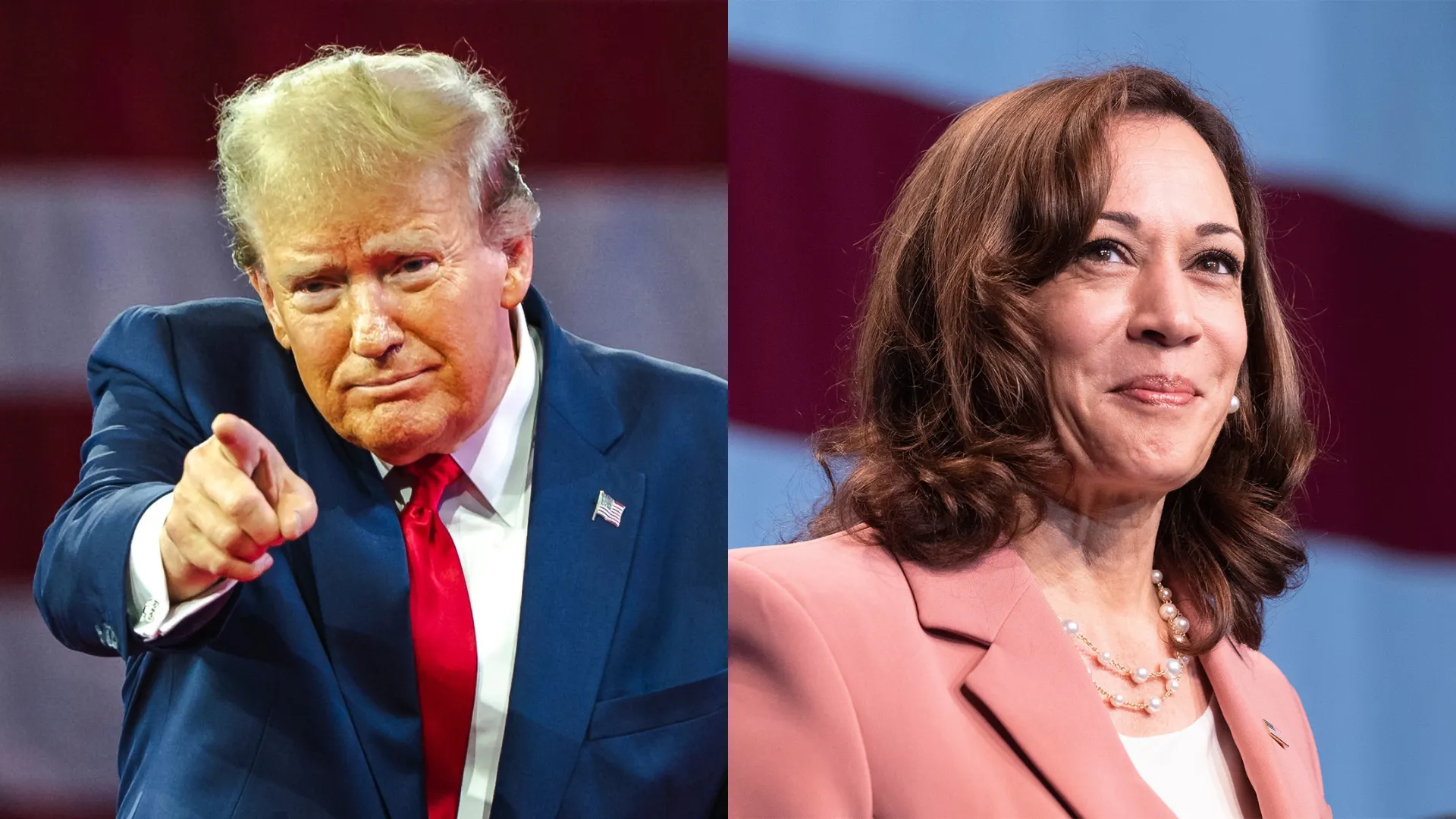Bitcoin (BTC) experienced a modest decline on Wednesday, dropping approximately 1.5% to trade at $56,500. The slip comes after the highly anticipated U.S. presidential debate between Vice President Kamala Harris and former President Donald Trump made no mention of cryptocurrency regulation.
The debate, which covered a wide range of topics from abortion rights to the ongoing conflict in Ukraine, left crypto enthusiasts and investors yearning for clarity on the candidates' stances regarding digital assets. And now the ripple effect of Bitcoin's decline has been felt across the broader cryptocurrency market.
Ethereum, the second-largest cryptocurrency by market capitalization, saw a 1.2% decrease, and is now trading at $2,330. Other popular altcoins took a dive, with Solana (SOL) and Dogecoin (DOGE) experiencing more significant drops of 2.5% and 3.2% respectively, data from CoinGecko shows.
Despite the day's losses, data suggests continued institutional appetite for cryptocurrencies, with spot Bitcoin exchange-traded funds (ETFs) recording a substantial net inflow of $117 million.
Leading the charge were Grayscale's mini ETF BTC, which saw a single-day inflow of $41.128 million, and Fidelity's (FBTC), which attracted $63.1561 million, according to data from SoSo Value.
Ethereum spot ETFs also showed signs of renewed interest, reversing a five-day outflow trend with a net inflow of $11.4 million on the same day. Fidelity's (FETH) and BlackRock's (ETHA) were the primary beneficiaries, with inflows of $7.1269 million and $4.3 million respectively, data shows.
While cryptocurrency regulation wasn't addressed during the presidential debate, former President Trump's stance on digital assets has evolved significantly. Initially skeptical, Trump has recently embraced Bitcoin, suggesting it could be "the new gold." In a recent interview, he even hinted at potentially appointing Elon Musk to oversee the U.S. financial system if re-elected, signaling a pro-crypto direction for his potential future administration.
On the other hand, Vice President Harris has been more cautious in her approach to cryptocurrency. During her time as a Senator, Harris co-sponsored the Blockchain Promotion Act in 2019, which aimed to create a working group to explore the potential uses of blockchain technology. However, she has not made many public statements specifically about cryptocurrency regulations since becoming vice president.
Speaking with Decrypt, Brian Dixon, CEO of OTC Capital said the market has priced in a moderate inflation figure and that a CPI number in line with or slightly below expectations could lead to a positive market reaction, as it might reinforce expectations for the Federal Reserve to maintain or adjust its monetary policy towards easing, potentially cutting rates.
“However, a significantly lower number might raise concerns about deflation, while a higher than expected CPI could lead to fears of persistent inflation, both scenarios potentially unsettling markets,” he said, adding that markets are still very much in flux.
He added: “The conversation around Bitcoin and digital assets continues to evolve, driven by technological adoption, regulatory changes, and macroeconomic conditions.”
This shift indicates a maturing market with more sophisticated investment vehicles, aimed at reducing risk through hedging strategies," he said.
Analysts from QCP Capital noted the market's disappointment in the lack of crypto policy discussion during the debate.
They warned of potential Bitcoin volatility. "The absence of a clear frontrunner in this election, coupled with the murky policy stances from both parties, heightens the possibility of a risk-off move in risk assets as we approach Election Day," they wrote.
This uncertainty could lead to increased volatility in the crypto markets as investors hedge against potential policy shifts.
The analysts also highlighted the shift in market focus towards upcoming economic indicators, particularly the Consumer Price Index (CPI) data release.
"The market is expecting CPI to print at 2.55% versus 2.9% previously. We find the chances of an upside surprise more likely. However, we anticipate minimal market impact from CPI as the focus has shifted to unemployment data," they noted.
Edited by Stacy Elliott.

